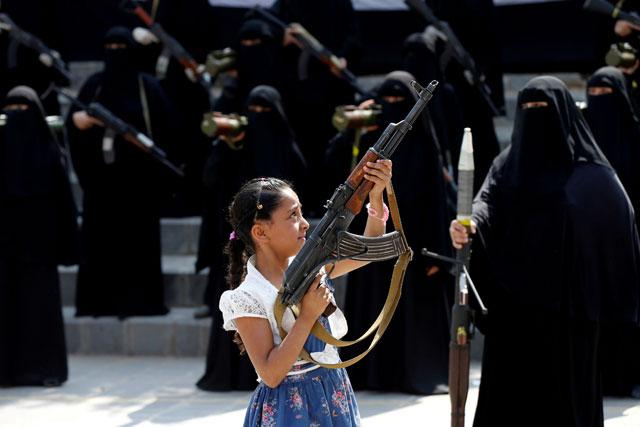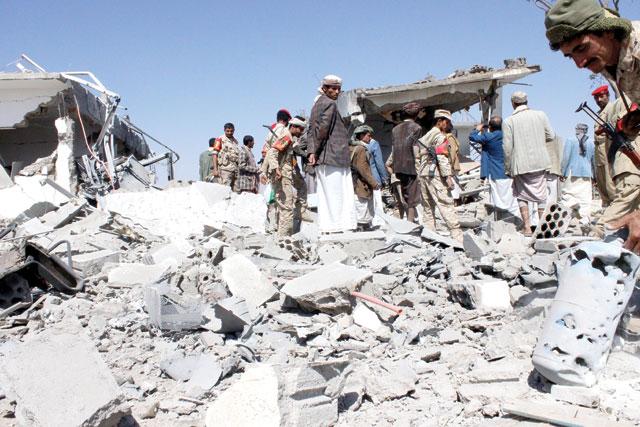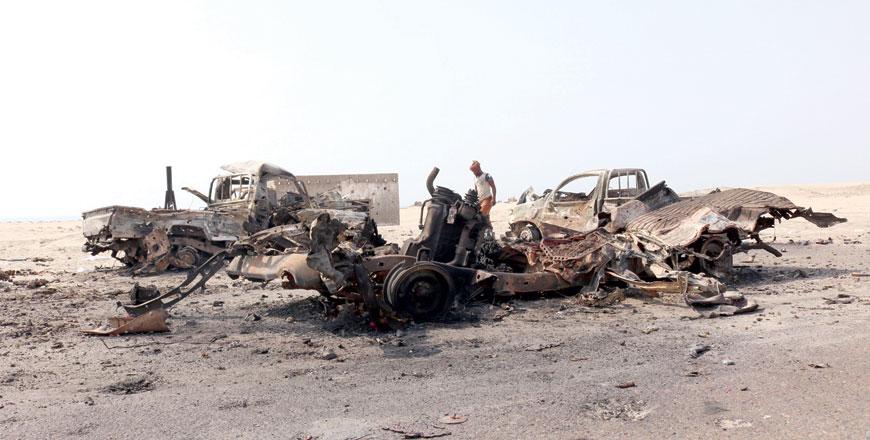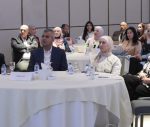You are here
Yemen’s Hadi would only give way to ‘elected’ leader
By AFP - Dec 05,2016 - Last updated at Dec 05,2016

A girl holds a rifle in front of women loyal to the Houthi movement taking part in a parade to show support to the movement in Sanaa, Yemen, September 6 (Reuters photo)
ADEN — Yemeni President Abed Rabbo Mansour Hadi would cede power only to an “elected” leader, after rejecting a UN peace roadmap asking him to hand over to a deputy, an official said on Monday.
Hadi made his statement during talks last week in Aden with UN Special Envoy Ismail Ould Cheikh Ahmed, who has begun a new attempt to restart negotiations between the government and Iran-backed rebels.
The official said the roadmap, whose content was not made public, requires Hadi to cede power to a vice president named in agreement with the rebels, a plan the president rejected.
Hadi referred to a former peace plan brokered by Gulf states, which stipulated that he would supervise the country’s political transition.
“The roadmap has contradicted the Gulf initiative in terms of the president’s powers,” the official told AFP, adding that Hadi should run Yemen during the transition and supervise national dialogue and elections.
“He would pass his powers to an elected president,” the official said.
The Gulf initiative eased former president Ali Abdullah Saleh out of power in 2012 after 33 years in office following a year of nationwide protests. It also led to Hadi’s election the same year.
But in a blow to the political transition, Saleh allied himself with Shiite Houthi rebels who overran the capital in 2014 and expanded their control across Yemen, forcing Hadi to flee to Riyadh in March 2015.
A Saudi-led coalition intervened the same month in support of Hadi’s government.
In his response to the UN mediator, Hadi demanded that Saleh and rebel chief Abdul Malik Al Houthi “abandon politics and be forced into a country of exile of their choice for 10 years”.
More than 7,000 people have been killed and nearly 37,000 wounded since Yemen’s conflict escalated after the Saudi-led military coalition intervened in March 2015.
Related Articles
An air strike killed at least 40 people at a camp for displaced people in north Yemen on Monday, humanitarian workers said, in an attack which apparently targeted a nearby base for Houthi fighters battling President Abed Rabbo Mansour Hadi.
SANAA — The United Nations envoy for Yemen arrived in Sanaa on Monday for another round of talks aimed at finding a solution to fighting in
ADEN — Southern Yemeni separatists said they arrested dozens of government loyalists in Aden on Saturday after President Abed Rabbo Mansour

















